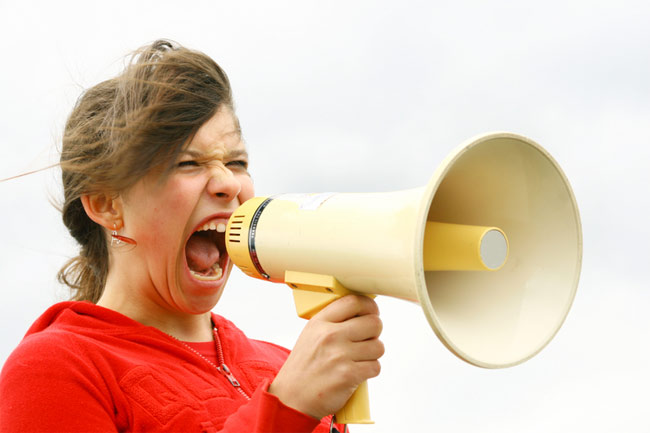Why Soccer Moms and Dads Go Mad

What turns otherwise upstanding citizens into loud-mouthed, combative you-know-whats at youth sporting events?
The worst offenders are ego-driven parents who take personally any slights to their children on the field, new research suggests.
While that might not be a big surprise, the study found the level of rudeness and rowdiness depends mostly on parents' personality types, and it put some numbers to an issue that had been largely anecdotal.
Overall, about half of the parents in the study reported getting angry during soccer games, and nearly 40 percent of the angry parents made their emotions known. These sideline expressions ranged from muttering or yelling comments to walking toward the field.
The findings make sense to a psychologist not involved in the study. "Their own sense of their personal worth gets wrapped up in how their children are doing in these ball games," said Edward Deci, a psychologist at the University of Rochester in New York. "And so the parents feel intense, internal pressure to see their kids performing because the kids are like extensions of themselves."
Soccer moms
Sports psychologists at the University of Maryland Jay Goldstein and Seppo Iso-Ahola surveyed 340 parents before and after soccer games in which their children participated. The kids were between 8 and 15 years old.
Get the world’s most fascinating discoveries delivered straight to your inbox.
The questionnaires measured, among other factors, stress and pressure, levels of anger and aggression and aspects of their personality related to "what makes them tick." The research focused on two personality types: control and autonomy orientations. (Past research has shown these personality components play a role in road rage.)
"The control-oriented personality is the parent who would be more apt to need to keep up with the Joneses," Goldstein told LiveScience. "They feel controlled by external forces." These external forces include fame, money and public status, he said.
Individuals who are self-motivated would be considered autonomy oriented, Goldstein said.
About half of the parents reported getting angry during the soccer game, though on average, anger levels were relatively low. The referee and their child's team topped the list of sources of anger, followed by rude opponents, hostile remarks or gestures, coaches and illegal play.
Most of the parents (61 percent of those who reported getting angry) kept their anger inside.
Among the nearly 40 percent who expressed their anger, about 19 percent muttered comments; 10 percent looked away from the field or yelled comments; about 8 percent stood up from their seats in response to the incident; while others walked toward or away from the field, made gestures or responded in some other manner.
It's personal
Parents with the highest scores on control-oriented measures were more likely to view a mishap on the field as a personal affront. Control-oriented parents were also more likely to get red in the face and behave badly compared with the autonomy parents.
"People who are high in autonomy are generally psychologically healthier," Deci said, "and so they're less likely to get bent out of shape if their kids make an error at some sporting activity."
One caveat was that when the autonomy parents did report taking field events personally, they were just as likely as other parents to fly off the handle.
“While your personality may buffer you, once you become ego-defensive all bets are off,” Goldstein said.
What's going on
While aggression by spectators dates back at least to Roman gladiator times, today more than 40 million American children play competitive sports, according to the National Council of Youth Sports, and parents flock to the sidelines.
That can be a bad combination. Among the most extreme examples: In Reading, Mass., in 2000 a father reportedly beat to death another father while watching their kids' youth hockey practice game.
Most sideline spats don't turn lethal. However, even small doses of parental aggression could take a toll on their children.
"The biggest issue is what do the kids hear? If they do hear this, how does it impact them? Does it embarrass them? Does it make them want to play more or less?" Goldstein said. "If we find that it does impact the kids in a psychological way or [impacts] their motivation to continue playing, that will be the wake-up call."
Anger management
To keep sideline aggression in check, parents will need some self-control. Goldstein suggests "adult" spectators need to create some emotional distance between themselves and what’s going on in-play.
"We need to kind of teach people how to monitor themselves in these situations," Goldstein said. "No organization, when you sign up your child up for little league or another sport, is going to tell you: 'By the way, you're going to get angry while watching your child play the game, and here are the steps to help you deal with it.'"
For parents wondering if they are prone to turning into monsters at youth sports events, Goldstein suggests checking out your driving behaviors. The underlying psychological mechanism that triggers screaming parents on the sidelines also is responsible for road rage, Goldstein said.
"If you're the type of person that when you’re driving becomes angry when someone cuts you off, you’re the type of parent that’s going to get angry watching your child play sports," Goldstein said.
The findings are detailed in the June issue of the Journal of Applied and Social Psychology.
- Video: Watch Robots Play Soccer
- The Most Dangerous Sports in America
- 10 Things You Didn't Know About You
Jeanna Bryner is managing editor of Scientific American. Previously she was editor in chief of Live Science and, prior to that, an editor at Scholastic's Science World magazine. Bryner has an English degree from Salisbury University, a master's degree in biogeochemistry and environmental sciences from the University of Maryland and a graduate science journalism degree from New York University. She has worked as a biologist in Florida, where she monitored wetlands and did field surveys for endangered species, including the gorgeous Florida Scrub Jay. She also received an ocean sciences journalism fellowship from the Woods Hole Oceanographic Institution. She is a firm believer that science is for everyone and that just about everything can be viewed through the lens of science.


